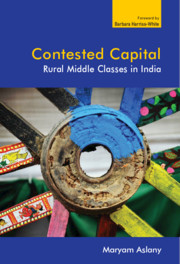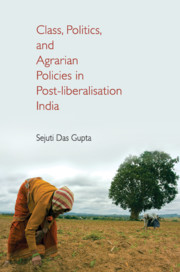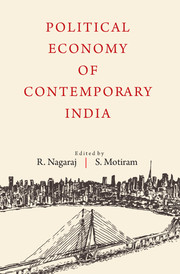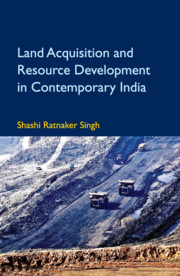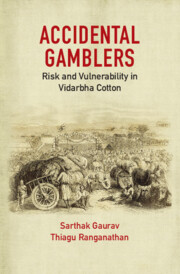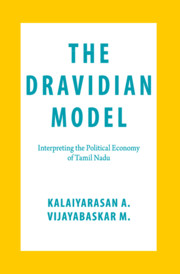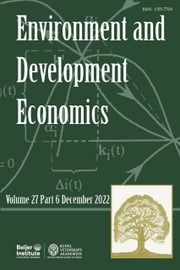Contested Capital
Rural Middle Classes in India
- Author: Maryam Aslany, University of Oxford
- Date Published: December 2020
- availability: Available
- format: Hardback
- isbn: 9781108836333
Hardback
Other available formats:
eBook
Looking for an inspection copy?
This title is not currently available on inspection
-
The expansion and transformation of Asian economies is producing class structures, roles and identities that could not easily be predicted from other times and places. The industrialisation of the countryside, in particular, generates new, rural middle classes which straddle the worlds of agriculture and industry in complex ways. Their class position is improvised on the basis of numerous influences and opportunities, and is in constant evolution. Enormous though its total population is, meanwhile, the rural middle class remains invisible to most scholars and policymakers. Contested Capital is the first major work to shed light on an emerging transnational class comprised of many hundreds of millions of people. In India, the 'middle class' has become one of the key categories of economic analysis and developmental forecasting. The discussion suffers from one major oversight: it assumes that the middle class resides uniquely in the cities. As this book demonstrates, however, more than a third of India's middle class is rural, and 17 per cent of rural households belong to the middle class. The book brings this vast and dynamic population into view, so confronting some of the most crucial neglected questions of the contemporary global economy.
Read more- Studies perspectives from Marx, Weber and Bourdieu
- Develops transferable methodological approach that interrogate theories, and bridges social theories and practice
- Offers theoretical pluralism
Reviews & endorsements
'Aslany analyses the making of an Indian rural middle class, at the intersection of caste, class and status by combining quantitative and ethnographic methods. Her book is a rather unique contribution to the study of 'rurbanisation' in India. Comparing two villages of Pune district, it shows how their inhabitants depend less and less on agriculture, but commute to nearby factories. A great work on an understudied key subject!' Christophe Jaffrelot
See more reviews'This is an excellent and empirically rich treatise on the self-perception people have of where they belong in India's changing class spectrum.' Jan Breman, University of Amsterdam
'This book significantly enriches our understanding of the changing dynamics of rural lives in India of the 21st century. By focussing on the subject of the 'rural middle class', the book opens up the study of the Indian village to an altogether new set of questions. Such a framing of the process of social change also enables the author to move out of the essentialist notions of the 'rural' and of 'India' that have often plagued the social science scholarship on the region. The use of 'critical pluralism' as a mode of approaching and analysing the subject has much to offer as an alternative way of looking at the middle classes and the complicated ways in which their formation intersects with other aspects of change, structural and discursive.' Surinder Jodhka, Jawaharlal Nehru University, New Delhi
Customer reviews
Not yet reviewed
Be the first to review
Review was not posted due to profanity
×Product details
- Date Published: December 2020
- format: Hardback
- isbn: 9781108836333
- length: 322 pages
- dimensions: 236 x 165 x 25 mm
- weight: 0.61kg
- availability: Available
Table of Contents
List of figures and maps
List of tables
List of abbreviations
Foreword Barbara Harriss-White
Acknowledgments
Introduction. The problem of the 'rural middle class(es)'
1. Trajectory of the Indian middle class: its size and geographical variations
2. In search of the rural middle classes: from village stratification to rural household variations
3. Marx: capital, labour and the rural middle classes
4. Weber: marketable capital, status and the rural middle classes
5. Bourdieu: cultural capital, self-perception and the middle-class identity in rural India
Conclusion. Understanding the rural middle classes
Appendices
References
Index.
Sorry, this resource is locked
Please register or sign in to request access. If you are having problems accessing these resources please email [email protected]
Register Sign in» Proceed
You are now leaving the Cambridge University Press website. Your eBook purchase and download will be completed by our partner www.ebooks.com. Please see the permission section of the www.ebooks.com catalogue page for details of the print & copy limits on our eBooks.
Continue ×Are you sure you want to delete your account?
This cannot be undone.
Thank you for your feedback which will help us improve our service.
If you requested a response, we will make sure to get back to you shortly.
×
